5 Ways That Counselling Brings Clarity, Connection, And Calm
Counselling can help you feel more like yourself again. Discover five powerful ways it supports your mental health, from clarity to connection.
Let’s be honest — life gets heavy.
There are times when everything feels like too much. Work stress. Family pressure. The weight of expectations. Or just a quiet feeling that something isn’t quite right, even if everything “looks fine” on the outside.
Maybe you’re feeling anxious more often than not. Maybe you’ve lost someone, or something, and haven’t quite been able to process it. Or maybe you’re simply exhausted — emotionally, mentally, spiritually.
If any of that sounds familiar, you’re not alone.

Talking therapy offers a space to pause, unpack what you’re holding, and begin to feel more like yourself again.
At Cynefin Therapy in Cardiff, we offer a gentle, inclusive space for people at all stages of their healing journey. Whether you’re seeking support for anxiety, relationships, stress, or something you can’t yet name — therapy can help you make sense of it all.
Here are five meaningful ways therapy can support your mental and emotional wellbeing.
1. You Get to Feel Genuinely Heard
One of the most powerful things therapy offers is the experience of being deeply listened to — without interruption, judgment, or expectation.
In a world that often demands quick fixes and polished answers, therapy is a rare space where you’re allowed to be messy, confused, raw, or silent. Whatever you’re bringing is welcome.
Many clients tell us: “I’ve never said this out loud before.”
That moment — the release, the relief — often marks the beginning of something new. A deeper connection to your truth, and to yourself.
2. You Start to Understand What’s Really Going On
Emotions don’t always speak in clear sentences. Sometimes they show up as irritability, overthinking, feeling numb, or waking up at 3am with a racing mind.
Through therapy, you begin to explore what lies underneath the surface.
“Why am I reacting this way? What does this sadness want to say? What’s the story I struggle to share?”
This growing self-awareness becomes a kind of inner compass. It helps you move through life with more clarity and self-trust, instead of just coping on autopilot. You might discover that what you thought was “just stress” is actually burnout. That the tension in your body is grief. That the anxiety is trying to protect you from something unhealed. And once you know — you can start to make changes and heal.
3. You Begin To Find Tools That Actually Work
Let’s face it : modern life doesn’t leave much space for emotional regulation. We’re expected to be constantly productive, presentable, and “fine.”
But when you’re dealing with anxiety, overthinking, emotional fatigue, or inner criticism, you need more than surface-level advice. You need tools tailored to you.
In therapy, you’ll explore strategies that help you feel more grounded in real time:
– How to ground yourself and calm your nervous system when you’re overwhelmed
– How to set boundaries that protect your energy
– How to relate to your inner critic
– How to speak to yourself with the same kindness you offer others
Some clients learn mindfulness or breathing techniques. Others benefit from journaling, somatic (body) work, or exploring their inner child. It all depends on what resonates with your nervous system, your history, and your pace.
At Cynefin Therapy, we don’t offer quick fixes — we offer space to be curious and heal
4. Your Relationships Begin to Shift
When you change, your relationships often do too. As you become more aware of your patterns — people-pleasing, shutting down during conflict, difficulty asking for support — you also start to understand where those patterns come from. Therapy helps you explore how early dynamics shaped your sense of self and safety. It gives you language to express your needs, and courage to protect your boundaries.Better relationships don’t start with others. They start with you.
Over time, many people find they start communicating differently. They argue less. Or speak up more. Or choose connection over control.
And sometimes, therapy helps you grieve relationships that no longer serve your wellbeing — while making space for ones that do.
5. Your Body Begins to Feel the Difference
We often forget that our emotional life lives in the body. Unprocessed grief can show up as fatigue. Chronic stress can lead to digestive issues, headaches, or muscle tension. Anxiety might take the form of tight breathing, clenched jaws, or insomnia.
Talking therapy — even though it’s “just words” — has real, physical effects. When you start feeling safe enough to express and release emotions, your body responds.
You might start sleeping better. Breathing deeper. Feeling more connected to your body’s cues instead of ignoring them.
And in many cases, physical symptoms begin to ease — not because the stress disappears, but because you’re no longer carrying it alone.
What Makes Cynefin Therapy Different?
At Cynefin Therapy, we believe healing isn’t linear — and it certainly isn’t one-size-fits-all.
We offer individual counselling, psychosexual therapy, and relationship therapy — both in-person at our Cardiff practice and online for those who prefer remote support.What makes us different is our approach:
- Rooted in compassion, not judgment
- Grounded in depth work, not quick tips
- Led by practitioners who meet you exactly where you are
Whether you’re new to therapy or returning after time away, we’ll work with you to create a space that feels safe, respectful, and truly yours.
You Don’t Need to Have It All Figured Out
You don’t need a diagnosis. Or a perfect explanation. You just need to show up — as you are.
If something inside you is saying, “I want support,” we’re here to listen. Reach out to us to learn more or book your first session.Let’s take this next step together
Get in touch

We are ready to hear your journey. If you are ready to enquire about starting counselling please fill out the form and we will be in touch.



